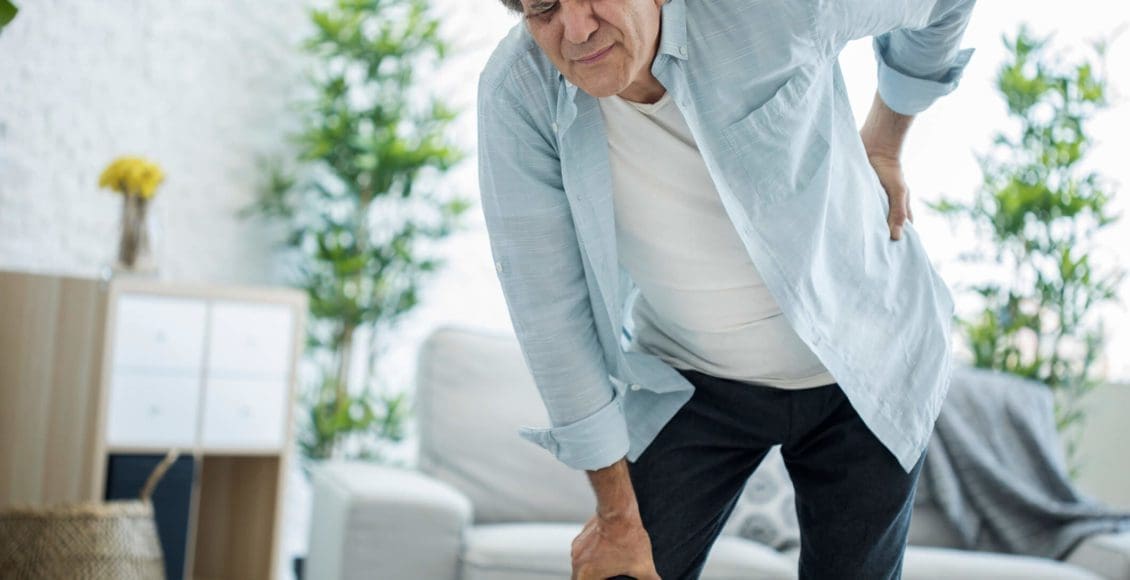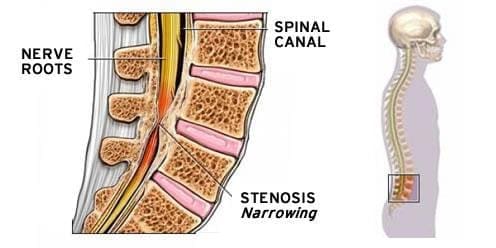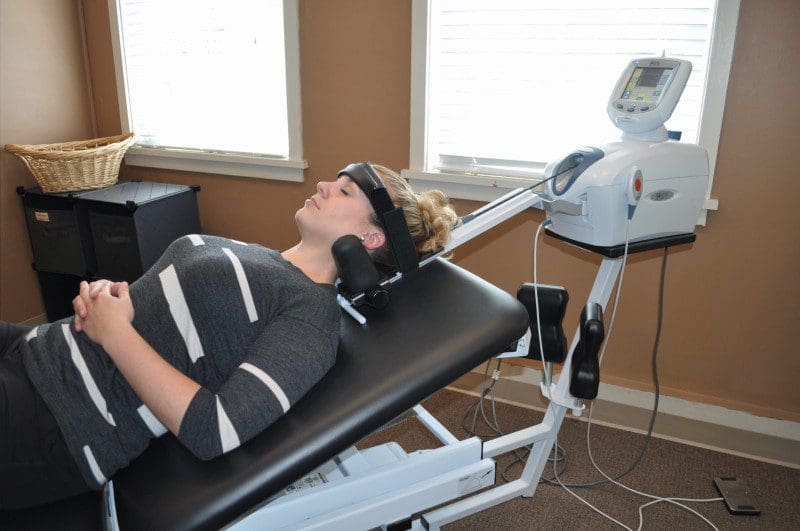Table of Contents
Introduction
The spine is located in the back of the body, ensuring that it’s standing, on the move constantly, and resting when needed. This S-shaped curve helps protect the spinal cord from various injuries and helps transmit the signals from the brain and throughout the rest of the body. When injuries start to affect the spinal cord, it can lead to many chronic issues affecting the spine, neck, and lower back. Fortunately, there are available treatments that help alleviate spinal problems in the body, therefore providing relief for the individual. Today’s article emphasizes spinal stenosis, how it affects the spine, and how decompression can help restore the spine for many suffering individuals. Patients are referred to qualified, skilled providers who specialize in spinal decompression therapy. We go hand in hand with our patients by referring them to our associated medical providers based on their examination when it’s appropriate. We find that education is valuable for asking crucial questions to our providers. Dr. Jimenez DC provides this information as an educational service only. Disclaimer
Can my insurance cover it? Yes, it may. If you are uncertain, here is the link to all the insurance providers we cover. If you have any questions or concerns, please call Dr. Jimenez at 915-850-0900.
What Is Spinal Stenosis?
Have you felt radiating pain traveling along your back? How about muscle weakness in certain parts of your body? Do you feel weird sensations on your legs, neck, or lower back? These are signs that you could be encountering spinal stenosis along your spine, causing these symptoms. Research studies have defined spinal stenosis as a frequent condition in the cervical and lumbar portions of the spine that compressed the nerve roots connected to the spinal column. Spinal stenosis usually occurs when a person has experienced traumatic injuries and degenerative changes that affect the spinal canal either with mechanical force or spinal issues like disc herniation. Additional information has found that when many people are suffering from spinal stenosis, it can become progressively worse if it is not treated beforehand and can cause symptoms affecting the spine. Some of the signs that spinal stenosis can cause to a person depending on how severe it has affected their spine; which can include:
- Radiating pain goes from dull to electric-shooting pain depending on the area in which spinal stenosis occurs.
- Pins and needles sensations run from the legs, arms, or neck that occasionally flare-up.
- Numbness that affects the arms and legs
- Muscle weakness reduces the motor functions of the legs and arms while causing coordination problems to the person.
How Does It Affect The Spine?
Since spinal stenosis causes nerve root compression and narrowing of the spinal canal, it can affect many people dealing with excruciating pain along their spine. Research studies have shown that when spinal stenosis affects the spine, it causes degeneration of the spinal discs between the spinal joints to become unstable, hypermobile, and even hypertrophy. What this does is that it reduces the spinal canal, causing intermittent neurogenic claudication, which makes a person lose their balance and fall. Additional research has shown that when intermittent neurogenic claudication is associated with spinal stenosis, it affects the nerve roots through mechanical compression. This results in factors like venous congestion, diminished arterial blood flow to the spine, and even decreased nerve root impulse conduction to the spinal column. All is not lost as there are available treatments for many people who suffer from spinal stenosis.
An Overview On Spinal Stenosis-Video
Have you been feeling various pains that range from dull to excruciating along your back? Do you feel muscle weakness located in the arms or legs? Or have you been experiencing weird tingling sensations that cause numbness to your arms or legs? These are symptoms of spinal stenosis and can affect your overall health while causing you pain. Fortunately, spinal decompression might be the answer that you are seeking. The video above explains the causes of spinal stenosis and how to treat them non-surgical. Spinal decompression helps the spinal column gently move and stretch the spinal discs back to their position and restore their original functionality. This will cause the spinal canal to be relieved and alleviate the symptoms affecting the spine’s motor functions. Not only that, but many suffering individuals will notice that other issues like back, neck, and leg pain are reduced in their bodies. Spinal decompression for alleviating spinal stenosis has given many beneficial factors for people that need relief. This link will explain how spinal decompression offers impressive results for many individuals who suffer from spinal stenosis or other spinal issues.
How Decompression Help Restore The Spine
With many treatments available for relieving spinal stenosis, research shows that non-surgical treatments like physiotherapy and spinal decompression can help reduce the pain symptoms caused by spinal stenosis and help improve the functionality back to the legs and lower back. Decompression does to the spine because it uses mechanical and manual traction to help loosen the stiff muscles and cause tension to reset the spinal discs back in place. Additional research has also shown that laminectomy, a form of surgical decompression, has been used to alleviate spinal stenosis by releasing the neural structures affected along the spine. With these treatments, many suffering individuals will feel much better and slowly regain their sense of purpose in the world without being in pain.
Conclusion
The spine helps the body protect the spinal cord while keeping it standing straight. When some injuries or issues affect the spine, it can lead to spinal problems like spinal stenosis. Spinal stenosis occurs when the nerve roots are compressed and narrow the spinal canal. The symptoms that spinal stenosis causes to the body can affect the sensory and motor functions to cause numbness and various pain ranging from dull to sudden sharp pain. Therefore, with decompression therapy, many individuals will feel relief from spinal stenosis as the spinal column becomes wider and allows the spinal discs to return to their proper position. Many people who use decompression treatments will feel much better and notice that their functionality is coming back, so they can keep on moving.
References
Bjerke, Benjamin. “What Is Spinal Stenosis?” Spine, Spine-Health, 25 Nov. 2019, https://www.spine-health.com/conditions/spinal-stenosis/what-spinal-stenosis.
Estefan, Martin, and Gaston O Camino Willhuber. “Laminectomy.” In: StatPearls [Internet]. Treasure Island (FL), StatPearls Publishing, 1 May 2022, https://www.ncbi.nlm.nih.gov/books/NBK542274/.
Lee, Seung Yeop, et al. “Lumbar Stenosis: A Recent Update by Review of Literature.” Asian Spine Journal, Korean Society of Spine Surgery, Oct. 2015, https://www.ncbi.nlm.nih.gov/pmc/articles/PMC4591458/.
Lurie, Jon, and Christy Tomkins-Lane. “Management of Lumbar Spinal Stenosis.” BMJ (Clinical Research Ed.), British Medical Journal Publishing Group, 4 Jan. 2016, https://www.ncbi.nlm.nih.gov/pmc/articles/PMC6887476/.
Munakomi, Sunil, et al. “Spinal Stenosis And Neurogenic Claudication.” In: StatPearls [Internet]. Treasure Island (FL), StatPearls Publishing, 12 Feb. 2022, https://www.ncbi.nlm.nih.gov/books/NBK430872/.
Raja, Avais, et al. “Spinal Stenosis – StatPearls – NCBI Bookshelf.” In: StatPearls [Internet]. Treasure Island (FL), StatPearls Publishing, 19 Dec. 2021, https://www.ncbi.nlm.nih.gov/books/NBK441989/.
Disclaimer
Post Disclaimer
Professional Scope of Practice *
The information on this blog site is not intended to replace a one-on-one relationship with a qualified healthcare professional or licensed physician and is not medical advice. We encourage you to make healthcare decisions based on your research and partnership with a qualified healthcare professional.
Blog Information & Scope Discussions
Welcome to El Paso's Premier Wellness and Injury Care Clinic & Wellness Blog, where Dr. Alex Jimenez, DC, FNP-C, a board-certified Family Practice Nurse Practitioner (FNP-BC) and Chiropractor (DC), presents insights on how our team is dedicated to holistic healing and personalized care. Our practice aligns with evidence-based treatment protocols inspired by integrative medicine principles, similar to those found on this site and our family practice-based chiromed.com site, focusing on restoring health naturally for patients of all ages.
Our areas of chiropractic practice include Wellness & Nutrition, Chronic Pain, Personal Injury, Auto Accident Care, Work Injuries, Back Injury, Low Back Pain, Neck Pain, Migraine Headaches, Sports Injuries, Severe Sciatica, Scoliosis, Complex Herniated Discs, Fibromyalgia, Chronic Pain, Complex Injuries, Stress Management, Functional Medicine Treatments, and in-scope care protocols.
Our information scope is limited to chiropractic, musculoskeletal, physical medicine, wellness, contributing etiological viscerosomatic disturbances within clinical presentations, associated somato-visceral reflex clinical dynamics, subluxation complexes, sensitive health issues, and functional medicine articles, topics, and discussions.
We provide and present clinical collaboration with specialists from various disciplines. Each specialist is governed by their professional scope of practice and their jurisdiction of licensure. We use functional health & wellness protocols to treat and support care for the injuries or disorders of the musculoskeletal system.
Our videos, posts, topics, subjects, and insights cover clinical matters and issues that relate to and directly or indirectly support our clinical scope of practice.*
Our office has made a reasonable effort to provide supportive citations and has identified relevant research studies that support our posts. We provide copies of supporting research studies available to regulatory boards and the public upon request.
We understand that we cover matters that require an additional explanation of how they may assist in a particular care plan or treatment protocol; therefore, to discuss the subject matter above further, please feel free to ask Dr. Alex Jimenez, DC, APRN, FNP-BC, or contact us at 915-850-0900.
We are here to help you and your family.
Blessings
Dr. Alex Jimenez DC, MSACP, APRN, FNP-BC*, CCST, IFMCP, CFMP, ATN
email: coach@elpasofunctionalmedicine.com
Licensed as a Doctor of Chiropractic (DC) in Texas & New Mexico*
Texas DC License # TX5807
New Mexico DC License # NM-DC2182
Licensed as a Registered Nurse (RN*) in Texas & Multistate
Texas RN License # 1191402
ANCC FNP-BC: Board Certified Nurse Practitioner*
Compact Status: Multi-State License: Authorized to Practice in 40 States*
Graduate with Honors: ICHS: MSN-FNP (Family Nurse Practitioner Program)
Degree Granted. Master's in Family Practice MSN Diploma (Cum Laude)
Dr. Alex Jimenez, DC, APRN, FNP-BC*, CFMP, IFMCP, ATN, CCST
My Digital Business Card




